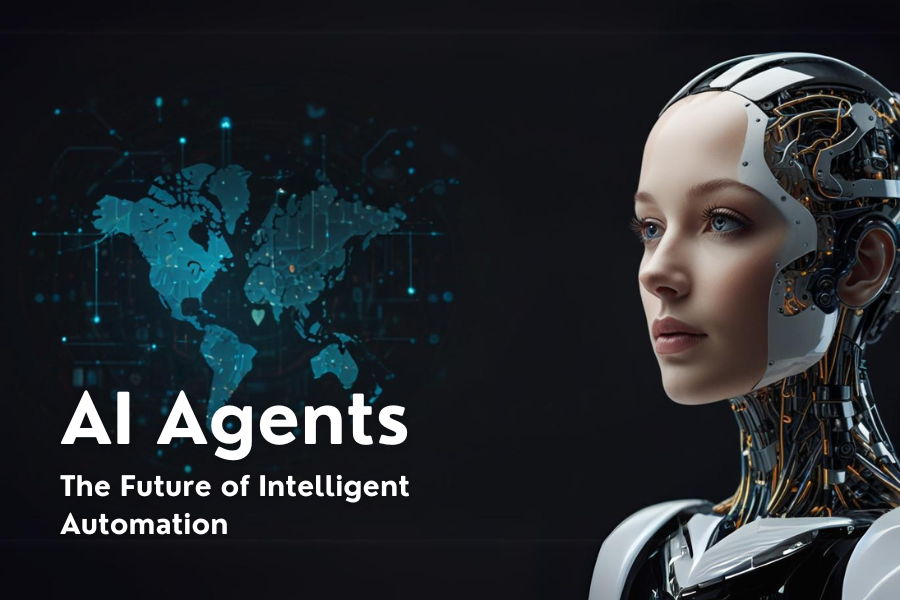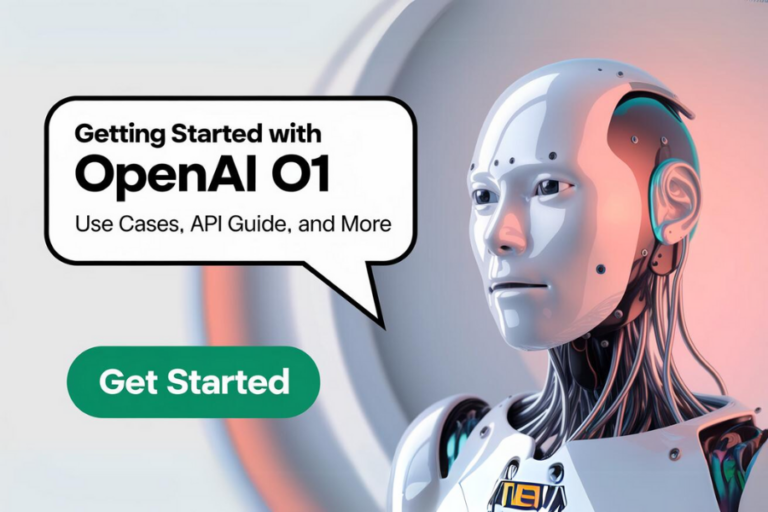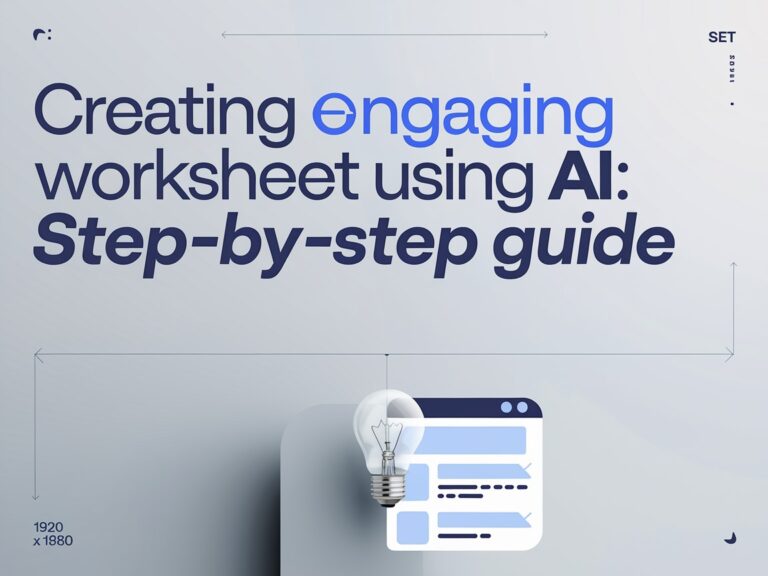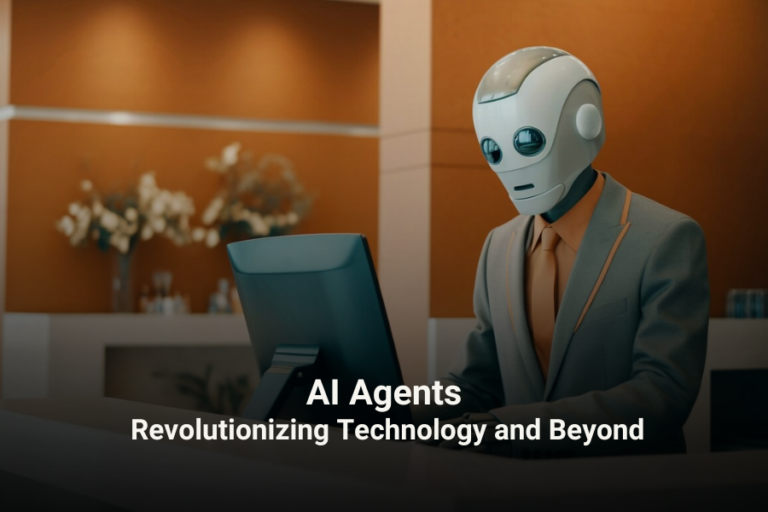AI Agents: The Future of Intelligent Automation
“AI Agents” on a blue and black checkered background. AI agents represent the forefront of artificial intelligence, gaining popularity as AI technology progresses.
What is an AI Agent?
An AI agent is a software program designed to perform tasks for users. These agents can automate processes, make decisions, and intelligently interact with their environment.
“AI agents are like magic,” said Patrick Hamelin, software engineer lead at Botpress. “They’re these magical entities that go beyond typical chatbots.”
AI agents are entities capable of perceiving their environment and taking actions to achieve specific goals. They can be either software-based or physical entities.
They gather information through sensors, process it using algorithms or models, and then act using actuators or other means.
Impact on the Workforce
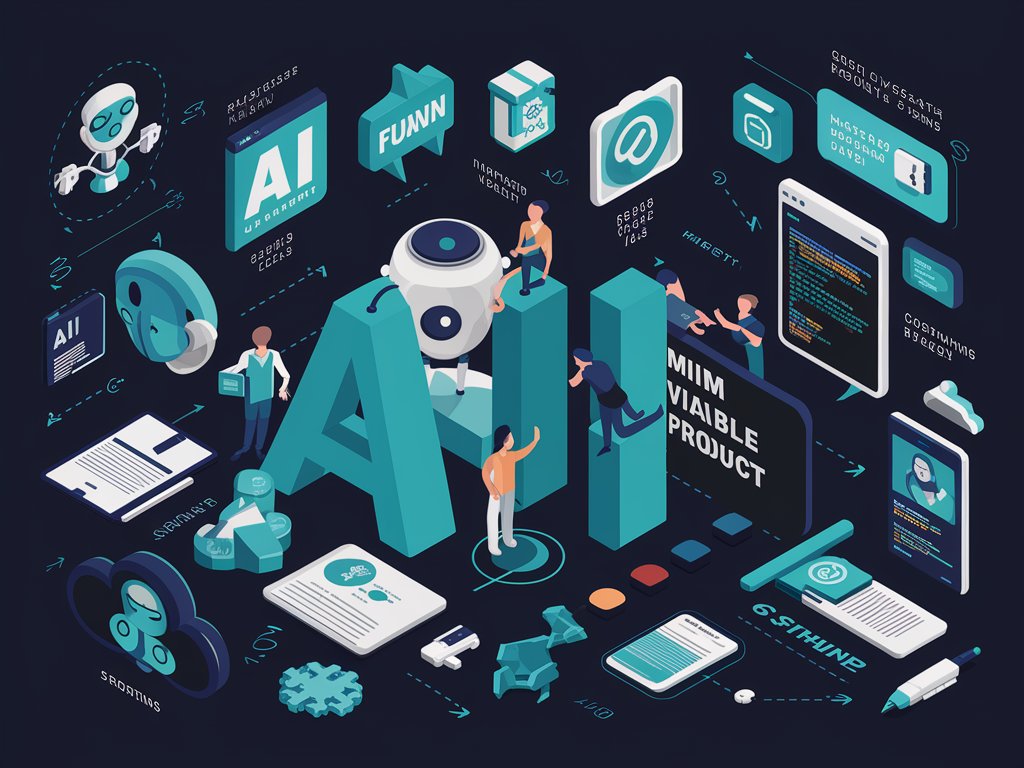
AI agents often require human input to initiate workflows. As AI adoption increases across industries, employees will likely receive more training on how to integrate AI into their work processes. This upskilling can lead to increased productivity and job satisfaction by allowing workers to focus on more complex and strategic tasks.
Difference Between AI Agents and Chatbots
AI agents and chatbots serve different purposes. Chatbots generally assist users directly and do not take autonomous actions, whereas AI agents can complete tasks independently without human interaction. Additionally, chatbots are usually text- or voice-based, while AI agents can take various forms, such as a robotic vacuum cleaner or a smart thermostat.
Characteristics of AI Agents
- Autonomy: AI agents can operate without human intervention, making independent decisions and actions. This allows them to handle complex tasks and make real-time decisions.
- Continuous Learning: AI agents improve over time through feedback from their environment or human operators. This feedback loop helps them adapt and make better decisions in the future.
- Reactive and Proactive: AI agents can react to changes in their environment and take proactive actions based on patterns or predictions.
Components of an AI Agent
Actuators: Mechanisms that allow AI agents to physically interact with their environment.
Knowledge Base: A repository of information that the AI agent uses to make decisions.
Types of AI Agents:
- Simple Reflex Agents: Operate based on predefined rules, suitable for simple tasks.
- Model-Based Reflex Agents: Maintain an internal model of the environment for more complex tasks.
- Utility-Based Agents: Make decisions based on the expected utility of actions.
- Learning Agents: Adapt and learn from experiences in unknown environments.
- Belief-Desire-Intention Agents: Model human-like behavior for complex systems.
- Logic-Based Agents: Use deductive reasoning for complex logical tasks.
- Goal-Based Agents: Act to achieve goals and adapt their actions accordingly.
